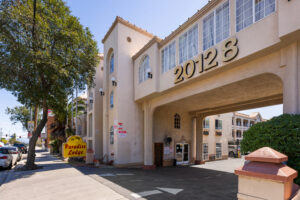Coronavirus real estate: Bay Area hotel loan woes intensify
Coronavirus real estate: Bay Area hotel loan woes intensify
https://www.mercurynews.com/2020/10/28/coronavirus-real-estate-bay-area-hotel-loan-woes-intensify/
Big hotels in East Bay, San Francisco, join Silicon Valley hotels with mortgage problems
PLEASANTON — A widening array of loan-related woes have begun to surface for hotels in at least four counties in the Bay Area, an indication that the economic damage from coronavirus-linked shutdowns has yet to run its course.
Five hotels in the East Bay, South Bay, and San Francisco — all deemed by experts to be high-end lodging facilities — now are suffering severe financial distress, according to multiple public disclosures obtained by this news organization.
“I think this is just the beginning of the problems with hotels,” said Alan Reay, president of Irvine-based Atlas Hospitality Group, which tracks the California lodging market. “Hotels in business-oriented markets are really taking the brunt of the pandemic now.”
The difficulties that have engulfed the five Bay Area hotels were revealed in notices of default or by disclosures that the hotel owners are willing to yield ownership of their properties to the holders of specialized financing vehicles known in real estate circles as collateralized mortgage-backed securities.
The latest crop of hotels in distress includes:
— Hyatt House Pleasant Hill, a 142-room hotel in Pleasant Hill
— Hyatt House Pleasanton, a 128-room lodging in Pleasanton
— Club Quarters Hotel, a 346-room hotel in San Francisco
— Hotel Avante, a 91-room lodging in Mountain View
— Wild Palms Hotel, a 208-room hotel in Sunnyvale.
“These are definitely high-end hotels that would be expensive to replace,” Reay said. “They are not 50-year-old functionally obsolete hotels.”
The two Hyatt House hotels in Pleasanton and Pleasant Hill are part of a group of 22 hotels that were the collateral for a financing package with a current loan balance of $204 million, according to a Standard and Poor’s analysis. The funding was issued to Shidler Group, the owner of the hotels, in mid-2017.
The Hyatt House Pleasanton, which has an assessed value of $48.9 million, received $23 million in financing as part of the 2017 funding package. Hyatt House Pleasant Hill is valued at $36 million and obtained $21 million in financing in 2017.
In 2017, both of the East Bay hotels were deemed to be the top performers in their respective markets, the Standard and Poor’s assessment stated.
Now, the payments on the financing for the Shidler-owned hotels have been delinquent for more than 90 days, according to New York City-based Trepp, which tracks and analyzes real estate and finance trends.
The Club Quarters Hotel in San Francisco is part of a financing package issued in 2017 and the loan balance is $273.7 million, Trepp reported. That loan is more than 90-days delinquent.
“With the Hyatt House hotels in the East Bay and the Club Quarters in San Francisco and the other hotels in those portfolios, the owners are looking at turning over the keys to the hotels to the lenders and just walking away from them,” Reay said.
The owners of the Wild Palms Hotel in Sunnyvale and the Avante Hotel in Mountain View are delinquent on a $37 million loan that was provided for the two properties in 2014, Santa Clara County public documents show.
As of September, the payments on the mortgage for the two South Bay hotels were delinquent by 90 days, according to property records. These hotels face foreclosure and seizure by Cantor Commercial Real Estate Lending, which provided the financing.
With business travel virtually non-existent amid the coronavirus and government-ordered shutdowns, a growing number of hotel property owners appear to believe it is unwise to continuously pour money into a hotel with questionable prospects of turning a profit in the foreseeable future.
“They wonder why should they keep paying the loan, paying the utilities, the insurance, the maintenance, taxes, cutting checks for employees when the hotel is upside down,” Reay said.
The problems extend far beyond the Bay Area and vacation destinations such as Anaheim, whose amusement parks are shuttered, according to Reay.
“We have boarded-up hotels in Manhattan,” Reay said. “Some hotels in Manhattan are losing $1 million a month.”
The current difficulties for the hotel sector amid the coronavirus are the worst Reay has seen, including the dreary years of the Great Recession.
“Even after the crash in 2008, you didn’t have hotel owners closing the doors and just walking away,” Reay said.


